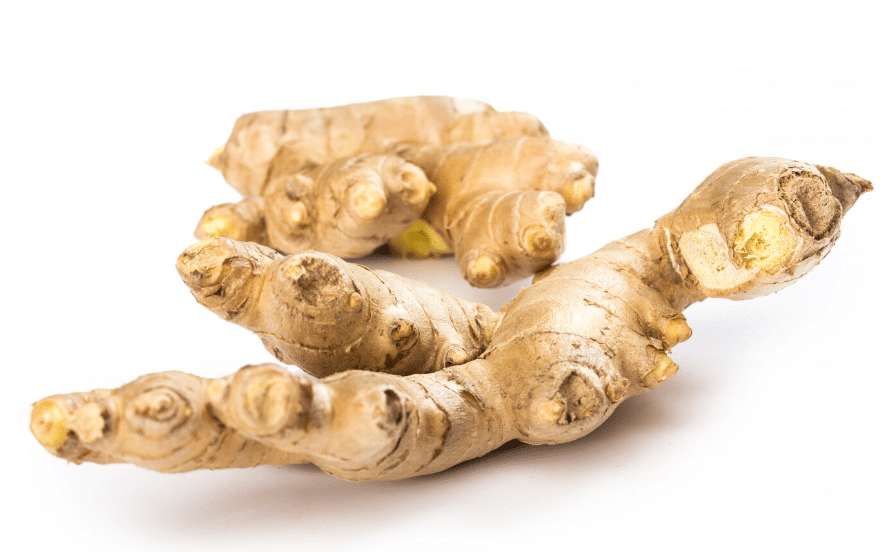Gingers, hailed for its culinary versatility and medicinal properties, has been used for centuries across various cultures. This blog will explore the key nutrients found in gingers and why it should be a staple in your diet. From vitamins and minerals to unique bioactive compounds, ginger is a powerhouse of health benefits waiting to be unlocked.
While not typically a calorie-dense food, ginger shines when it comes to packing a nutritional punch per serving. Here’s a closer look at the key players in this spicy root:
Key Nutrients
Vitamins:
- Vitamin C: This potent antioxidant is crucial for immune function, collagen production (hello, healthy skin!), and protecting your cells from damage. A single tablespoon of fresh gingers can provide around 5% of your daily vitamin C needs.
- Vitamin B6 (Pyridoxine): A key player in brain development and function, vitamin B6 also helps make red blood cells and neurotransmitters. Ginger is a good source of this essential B vitamin, contributing to energy metabolism and nervous system health.
Minerals:
- Manganese: Don’t underestimate this trace mineral! Manganese is essential for bone health, metabolism, and wound healing. Ginger provides a small but significant amount of manganese, which also plays a role in antioxidant defense.
- Potassium: An electrolyte superstar, potassium helps maintain fluid balance, keeps your heart happy, and supports muscle function. Ginger’s potassium content can contribute to healthy blood pressure regulation.
- Magnesium: From muscle relaxation to blood sugar control, magnesium is involved in over 300 bodily processes! Ginger’s magnesium content may help promote relaxation and restful sleep.
Bioactive Compounds: The Real Stars of the Show
These naturally occurring plant compounds are where gingers truly shines, offering a range of potential health benefits:
- Gingerols: These pungent compounds give ginger its signature bite and are responsible for many of its anti-inflammatory and antioxidant effects. Studies suggest that gingerols may help protect against certain types of cancer and reduce the risk of heart disease.
- Shogaols: Formed when ginger is heated or dried, shogaols are even more potent antioxidants than gingerols and contribute to ginger’s nausea-fighting abilities. They are also being investigated for their potential anti-cancer and neuroprotective properties.
- Zingerone: Another compound formed during heating, zingerone boasts antioxidant and anti-diarrheal properties. It may also help protect against ulcers and reduce muscle pain after exercise.
- Essential Oils: Responsible for ginger’s distinct aroma, these oils also contribute to its anti-inflammatory and digestive benefits. They may also have mood-boosting and stress-reducing effects.
Nutritional Profile: A Snapshot
| Nutrient | Amount per 100g Fresh Ginger | % Daily Value (DV) |
|---|---|---|
| Calories | 80 | 4% |
| Carbohydrates | 17.8g | 6% |
| Protein | 1.8g | 4% |
| Fat | 0.8g | 1% |
| Fiber | 2g | 8% |
| Vitamin C | 5mg | 6% |
| Vitamin B6 | 0.2mg | 11% |
| Manganese | 0.2mg | 9% |
| Potassium | 415mg | 9% |
| Magnesium | 43mg | 11% |
Please note: Daily Value (DV) percentages are based on a 2,000 calorie diet. Your individual needs may vary.
Gingers: More Than Just a Pretty Rhizome
Ginger’s impressive nutritional profile translates into a wide array of potential health benefits. Here’s how these nutrients work their magic:
- Nausea Relief: Gingerols and shogaols are thought to act on the digestive system to ease nausea and vomiting, making ginger a popular natural remedy for motion sickness, morning sickness, and even chemotherapy-induced nausea. Studies suggest that ginger can be as effective as some anti-nausea medications, with fewer side effects.
- Anti-Inflammatory Action: Gingerols have been shown to possess anti-inflammatory properties, potentially reducing pain and stiffness associated with osteoarthritis, muscle soreness, and menstrual cramps. Some studies indicate that ginger can be as effective as ibuprofen in relieving pain in individuals with osteoarthritis.
- Digestive Support: Ginger may help stimulate digestive enzymes and promote healthy digestion, easing bloating, gas, and indigestion. It’s been used for centuries in traditional medicine to soothe digestive upset and speed up the movement of food through the digestive tract.
- Immune Boosting Power: The combination of antioxidants like gingerols, shogaols, and vitamin C may help strengthen the immune system and protect against infections. Ginger’s antiviral and antibacterial properties might also contribute to its immune-boosting potential.

incorrect statements about gingers
Incorrect Statement: “Ginger is a rich source of Vitamin B12, making it beneficial for vegans and vegetarians.”
Scientific Correction: Ginger does not naturally contain Vitamin B12. This vitamin is primarily found in animal products. Confusing gingers as a B12 source could lead to deficiencies, especially in individuals following plant-based diets.
Incorrect Statement: “Gingers thin the blood as effectively as aspirin.”
Scientific Correction: While gingers contain compounds that may have mild blood-thinning properties, it’s inaccurate to claim it’s as potent as aspirin. Aspirin works through a specific mechanism targeting platelet aggregation, while ginger’s effects are more complex and less potent. It’s crucial to consult a doctor before using ginger alongside blood-thinning medications to avoid potential interactions.
Incorrect Statement: “Ginger directly kills bacteria, making it a natural antibiotic.”
Scientific Correction: While some lab studies show ginger extracts inhibiting bacterial growth in controlled settings, this doesn’t translate to ginger acting as an antibiotic within the human body. Antibiotics target specific bacterial mechanisms, while ginger’s antimicrobial action is likely multifactorial and less potent. Relying solely on ginger to treat bacterial infections can be dangerous.
Incorrect Statement: “Ginger significantly lowers blood sugar in individuals with diabetes.”
Scientific Correction: While some studies suggest ginger may modestly improve blood sugar levels in people with type 2 diabetes, it’s inaccurate to claim it significantly lowers blood sugar. Diabetes management requires a comprehensive approach involving medication, diet, and lifestyle changes. Ginger should be used cautiously and under the guidance of a healthcare professional.
Remember: Scientific understanding is constantly evolving. Always consult reputable sources and healthcare professionals for the most accurate and up-to-date information about ginger’s properties and potential applications.
From Ancient Remedy to Modern Marvel
Ginger’s use can be traced back thousands of years, with mentions in ancient Chinese, Indian, and Greek texts. It’s fascinating to see how this humble rhizome has transitioned from a traditional remedy to a subject of modern scientific research, with studies continually uncovering new and exciting potential benefits.
Whether you’re adding it to your morning smoothie for a zesty kick, sipping on gingers tea to soothe a sore throat, or incorporating it into your favorite stir-fry for an explosion of flavor, ginger offers a delicious and versatile way to enhance both your culinary creations and your overall well-being. Its unique combination of nutrients and bioactive compounds makes it a true powerhouse of flavor and potential health benefits.
Everything about Gingers is here:The Amazing Ginger: A Must-Read Guide.
